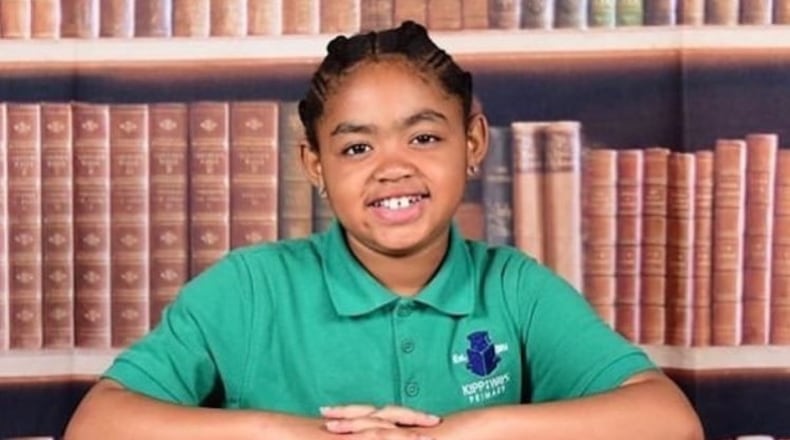A defendant accused in the 2020 shooting death of an Atlanta 8-year-old cannot hide evidence of his prior crimes under the Georgia Street Gang Terrorism and Prevention Act, the Georgia Supreme Court ruled Tuesday.
Jerrion McKinney, who is accused of taking a loaded rifle to a gang-related blockade at which Secoriea Turner was shot, committed firearm-related offenses in Missouri years before, records show. McKinney wants to exclude evidence of those prior crimes from his trial in Secoriea Turner’s death.
Georgia’s nine justices unanimously held that the state gang law permits evidence of certain prior crime committed by a defendant, even if there’s no link between the prior crime and gang activity. The ruling affirms a decision of the Georgia Court of Appeals.
Writing for the state Supreme Court, Presiding Justice Nels S.D. Peterson said the gang law “by itself contains no requirement of a connection between the other act and gang membership or interests in order for the act to be admissible.”
McKinney faces a raft of charges in relation to Secoriea Turner’s death, including multiple violations of Georgia’s gang statute, aggravated assault and unlawful gun possession. His co-defendant, Julian Conley, additionally faces murder charges. Both pleaded not guilty.
Prosecutors allege that McKinney and Conley are Bloods-affiliated gang members who participated in a gang protest in Atlanta on July 4, 2020, near where a police officer fatally shot Rayshard Brooks at a Wendy’s restaurant three weeks prior.
Prosecutors said Conley shot at the Jeep Secoriea Turner was riding in near the burned-out Wendy’s, where protestors had partially blocked off an intersection. They said a rifle-wielding McKinney tried to pursue the Jeep after the rising third-grader was struck in the head with a bullet.
McKinney’s case will now return to a Fulton County court, where he can try to exclude the evidence of his prior crimes under a different aspect of Georgia law.
McKinney’s lawyer and Fulton County prosecutors, who argued the case before the state Supreme Court in early February, did not immediately respond to questions about the ruling Tuesday.
Justices indicated during February’s hearing that the evidence of McKinney’s crimes in Missouri could ultimately be suppressed in his upcoming trial over Secoriea Turner’s death, if it only serves to show McKinney in a bad light.
In Georgia, relevant evidence against a criminal defendant can be excluded if its value is outweighed by the associated prejudice to the defendant.
Credit: Channel 2 Action News
Credit: Channel 2 Action News
In May 2015, McKinney took a stolen firearm to his Missouri school and pointed it at a classmate’s head, records show. In February 2016, McKinney shot himself in the foot with a 9mm pistol and then hid the gun in nearby bushes, claiming he had been the victim of a drive-by shooting. And in April 2017, McKinney robbed two people at gunpoint of an iPhone7.
A Fulton County judge ruled in March 2022 that the 2017 incident was gang-related and therefore could be mentioned in McKinney’s trial in Secoriea Turner’s death. The other Missouri incidents were not linked to gang activity and couldn’t be used against McKinney at trial under the state’s gang law, the judge decided.
In November 2022, the Georgia Court of Appeals agreed with prosecutors that evidence of the 2015 and 2016 incidents could be admitted under the gang law. The appeals court then ordered the county judge to decide if that evidence could be presented under a different section of state law.
McKinney’s lawyer, Michael Katz, argued that the 2015 and 2016 incidents had nothing to do with McKinney’s alleged gang affiliation.
Prosecutors have said in court filings that McKinney was a gang member when he committed the crimes in Missouri, and that he flaunted his gang membership on social media.
About the Author
Keep Reading
The Latest
Featured



